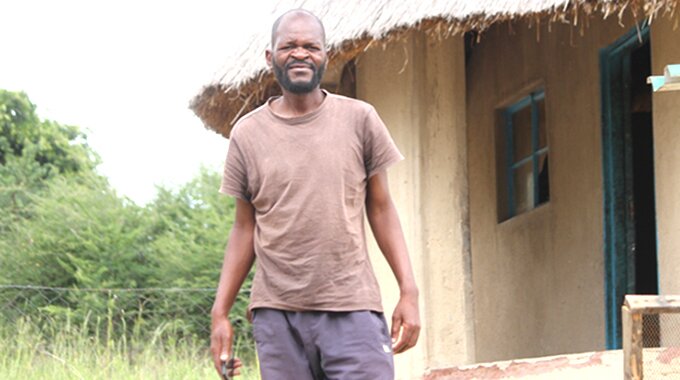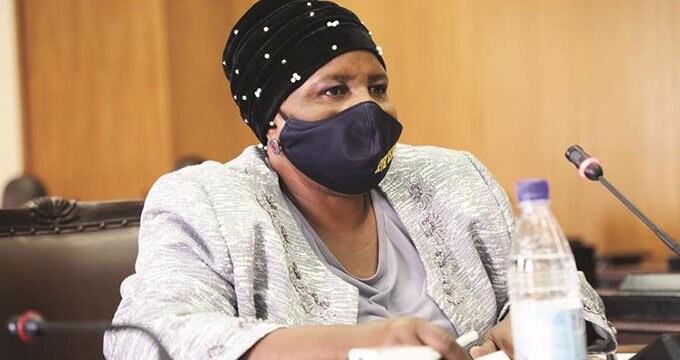Walter Mswazie recently in Chiredzi
Juliet, who also confirmed having contracted HIV from sex work, and is on ART, is convinced that if the programme was spread throughout the country, great strides could be achieved.
She said they were also involved in raising awareness on the importance of screening for cervical cancer at health centres, as well as improving communication skills of sex workers.
Juliet Mada (46) of Chiredzi’s Tshovani Township is an HIV positive divorced mother of two with sex work experience spanning over 30 years.
Losing both parents at a tender age of 10 meant that Juliet would not proceed with education.
Advertisement
Relatives took over, but she could not go beyond Form Two, and as fate would have it, she was married at the age of 16 to a much older man.
Speaking to journalists during a National Aids Council (NAC) tour at Chiredzi’s Poly Clinic recently, Juliet, who is also known as Aunt Mada, said for her being in the sex work was not out of love for many partners.
It was a decision she took after a serious soul searching, coupled with the desire to fend for the children who had been neglected by their biological father.
The man, she said, was abusive and neglected her, but she soldiered on as someone who respected marriage and was an orphan.
Juliet had two children before she reached 18, and by that time her husband had already married a second wife.
She could not stand being in a polygamous marriage and packed her bags.
Juliet said it was when living alone that she decided to get involved in sex work, but would alternate the ancient profession with vending to augment her earnings.
In 2014, the National Aids Council (NAC) working in conjunction with CERSHA , introduced a programme which mobilised sex workers into peer educators in Chiredzi.
The peer educators were meant to help other sex workers appreciate safe sex, seek treatment of sexually Transmitted Infections (STIs) early and adhere to treatment for those on anti-retrotherapy.
Juliet was selected to be the leader and together with her group comprising more than 20 members, all sex workers, they embarked on awareness raising campaigns, visiting all HIV and STIs hot spots in the sugar producing town.
Advertisement
“We received training on how to collect data and mobilising sex workers so that they know their HIV status through testing, seek early treatment on STIs and provide them with condoms as protection measures,” said Juliet.
“According to my register, we now have over 1 000 members, all sex workers. We have both HIV positive and HIV negative members that we educate on the significance of condom use. We also encourage the use of pre-exposure prophylaxis to those who think they can be exposed to infection.”
Juliet said since the time sex workers were involved in raising awareness, there has been remarkable decrease in incidents of STIs in Chiredzi and attributed this to their combative efforts.
“A total of 108 people that also include sex workers are treated of STIs at local health centres in Chiredzi , every month,” she said. “However, overally, from 2014 when we started, incidents of STIs have been reduced from an alarming figure of 1 500 per quarter down to 800 cases.”
Juliet said the reduction was evidence that sex workers were doing a great job in reducing sexually related infections that also include HIV.
Juliet, who also confirmed having contracted HIV from sex work, and is on ART, is convinced that if the programme was spread throughout the country, great strides could be achieved.
She said they were also involved in raising awareness on the importance of screening for cervical cancer at health centres, as well as improving communication skills of sex workers.
This, she said, is done to help sex workers stand their ground when clients want to abuse them, as well as initiating safer sex.
She said some clients would dangle a carrot, flashing more money for unprotected sex, but a responsible sex worker should refuse the offer and maintain the use of condoms.
“We also encourage our members to go for screening for cervical cancer as it is also a deadly disease these days,” said Juliet. “Some of the trainings include communication skill to help sex workers negotiate safe sex and also charge sustainable fees for their services, as it is a profession.”
Advertisement
Juliet said while they were enjoying peer educating jobs, they met some challenges, especially with under-age girls who were found at the same “hunting grounds” with the veterans.
“Our favourite hunting grounds are Chigarapasi Beerhall here in Tshovani Township and Labamba Bottle store in Chiredzi city centre,” she said. “This is where we meet young girls, as young as 14 years, especially when there are musical shows. Most of them are stubborn as they do not listen tour our teaching.
“They do not even accept our condoms, accusing the veteran sex workers of being jealousy of their tender ages. They compete with us and most of them are ignorant as they would have unprotected sex or offer free sex.
“These young girls are euphemistically referred to as new bales (mabhero ma new one) and clients normally stampede to have a feel because of their young age. This will be pure abuse and sometimes we have engaged police to arrest the abusers.”
Juliet said the young girls were sometimes risking their lives charging unrealistically low fees.
“Another challenge that we have, pertaining these children, is that they charge pathetic fees, with some doing sex for a plate of sadza, and we see that as sabotage, as we have families to look after,” she said.
“Our normal charges are $50 for a quickie and between $100 and $150 for the night depending on the date of the month.
“Sex work is not for leisure as I don’t have any reason to enjoy. I mean business and I will not wait to ensure that the client is entertained or not as I make sure I maximise on profit. I would want to engage as many clients as possible per night.”
Juliet said because of her age, she was now slowing down on sex work to concentrate on vending.
“My age no-longer allows me compete with younger sex workers,” she said. “So, I now preoccupy myself with vending without going to the beer hall unless a client comes to my base.
“Before having sex with the man, I take him through some lessons on safer sex, early treatment of STIs, adherence to those on ART, among other sex education data. So, those who come to me will definitely receive double portion, which is sex plus education.”
Chiredzi District Aids Coordinator (DAC) Mr Peter Nyakudya hailed the peer educators for being instrumental in reducing incidents of HIV, which stands at 14 percent in the district.
“Our statistics have shown that there has been a drastic decrease of incidents of STIs since involving sex workers in peer education,” he said. “We are already accruing benefits from their activities, as they even continue with awareness raising during engagements with clients.
“Reducing incidents of STIs from 1 200 to 800 is no mean achievement.”
Mr Nyakudya said the health seeking behaviour of sex workers had improved and the peers shared important information with high degree of openness.
NAC spokesperson Mrs Tadiwa Pfupa-Nyatanga said engaging sex workers in managing HIV and Aids had a positive impact in reducing infection levels and stigma.
“More sex workers are coming out in the open with a positive message that helps the country fight the disease,” she said. “The fact that they are coming together and share information about their health has demystified their profession.
“They are part of key population that need information on HIV and how to reduce its prevalence.”
Mrs Pfupa–Nyatanga said NAC and its partners wish to scale up such programmes until everyone had information on how to reduce incidents of infection, in line with the target of 90,90,90 and thus, “reduce by 90 percent HIV related deaths, new infection and stigma.”
The country has 13,7 percent HIV prevalence rate.
– HERALD








